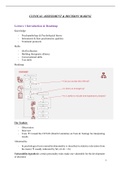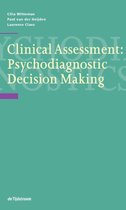Samenvatting
Summary Clinical Assessment & Decision Making
- Instelling
- Radboud Universiteit Nijmegen (RU)
- Boek
- Clinical Assessment
This Summary entails lectures and book chapters as well as articles that were introduced in the course clinical assessment and decision making in 2022/23.
[Meer zien]





